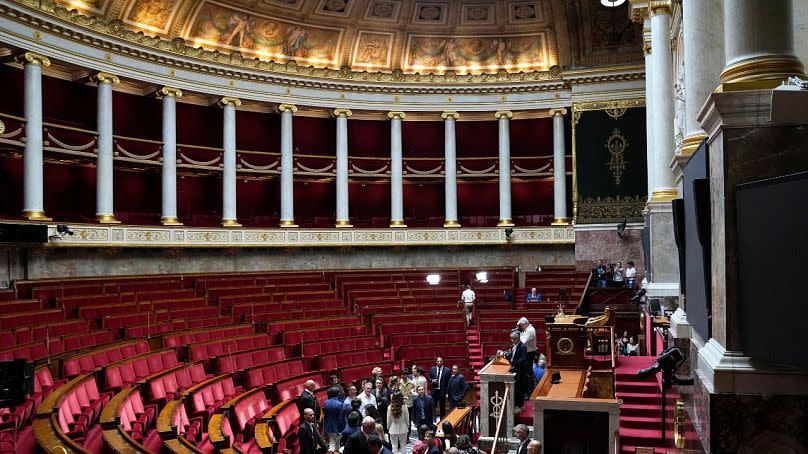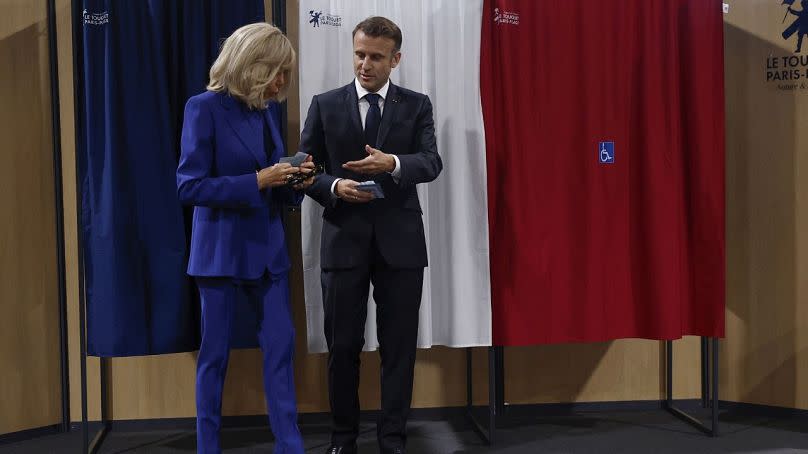French elections: Relief for tech sector but nerves rattled over potential leftist plans

French start-ups are relieved following the results of a snap legislative election called by president Emmanuel Macron last month but remain wary about how the political shake-up will impact the striving sector.
The results from the second round on Sunday surprised and contradicted opinion polls with the left-wing coalition Nouveau Front Populaire, or New Popular Front (NFP), gaining the most seats in parliament.
Macron’s Ensemble coalition came in second place, followed by Marine Le Pen’s far-right Rassemblement National, or National Rally (RN).
As neither of the three parties won a majority, they cannot govern alone. A new prime minister will be appointed but it is unclear who and from which party the person will be formed.
Critical roles such as ministers and secretaries of state for digital and finance will also be appointed.
Far-right policies would have ‘had negative impact’
The tech start-up industry told Euronews Next ahead of the vote that a far-right RN majority, or a far-left victory, could be bad for business. But the uncertainty is also troubling.
“The majority of our start-ups are relieved by the election results,” said Roxanne Varza, the director of Station F, the world’s largest start-up campus based in Paris.
“We have a very international community - with over 65 nationalities - so obviously an anti-immigration policy would have had a negative impact on our start-ups and the dynamism of the sector,” she told Euronews Next.

“Thanks to these international profiles, our start-ups are internationally competitive, which was less the case a few years ago,” she added.
Nevertheless, she said leftist proposals, such as raising the minimum wage, making changes to the tax system, and reinstating a wealth tax, which would reverse Macron’s business-friendly reforms, “could scare off international investors and make our ecosystem less attractive for setting up a business”.
“We could see a drop in the number of businesses created, less foreign investment, and consequently fewer jobs created,” she said, adding that “for the moment, nothing is set in stone”.
French tech risks being left behind
Varza said that a hung parliament probably would not have a big impact on France’s tech sector but that it may leave the country behind in the tech race.
“If we don't move forward, we leave room for others. Other ecosystems in Europe can move forward faster and become more attractive,” she said.
But Maya Noel, the CEO of the lobby group France Digitale, said that the start-up and innovation ecosystem - like the rest of the economy - “now needs stability to continue recruiting, finding customers and investment in France, Europe, and around the world”.
Macron has championed the country’s tech sector, which he dubbed a “start-up nation,” by pushing for tax reforms to benefit tech companies and launching projects such as the national investment plan France 2030, which has a value of €54 billion.

This could be under threat with the political hold-up, said Véronique Torner, the president of Numeum, a union that represents French tech companies.
“Our sector needs visibility and stability on the fiscal front to successfully complete major investment projects, such as the France 2030 plan,” she told Euronews Next, adding that it was still too early to say whether the election results will be good or bad for the sector until the country’s political landscape is decided on.
Macron has also set his sights on turning Paris from the City of Light into the city of artificial intelligence (AI).
But Torner said the country must act now if it wants to fulfil Macron’s vision.
‘Shame’ for France to lose leadership on AI
“We need to harness artificial intelligence now so that it serves everyone, and not the other way round,” she said.
“Whatever political changes are observed over the coming months, it is essential that the national AI strategy presented by the government in 2018 continues to strengthen our political, economic, and technological autonomy”.
For Station F’s Varza, while she said the tech ecosystem is more mature than before, changes in government measures could impact France’s international competitiveness in certain key areas, such as AI.
“France has become a real leader in this area (AI), and some of our start-ups are being compared to OpenAI, which is not the case with our neighbours. It would be a real shame to lose our leading position,” she said.
Nevertheless, Varza is upbeat about the future of French tech amid the political upheaval.
“I don't think everything's quite clear yet, but our ecosystem is very solid and the results aren't as bad as we'd imagined,” she said.


